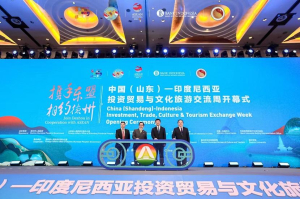Thousands of Indonesian exporters begin to move away from US Dollar, prefer local currency
Bank Indonesia has reported an increasing number of Indonesian exporters and importers abandoning the use of the US dollar for international trade transactions. Instead, these business operators are taking advantage of the local currency transaction (LCT) arrangements with four countries.
Currently, Indonesia has LCT arrangements with China, Japan, Malaysia, and Thailand. Through this facility, businesses in Indonesia and the four aforementioned countries can directly conduct transactions using their respective local currencies, without the need for the primary currency, such as the US Dollar.
More than 2,000 businesses take advantage of LCT
According to BI's records, the LCT facility has been used by 2,014 entrepreneurs, encompassing both small and large businesses, during the first six months of this year. This figure significantly surpasses last year's count of 1,741 entrepreneurs.
"We are optimistic that this number will continue to increase due to improved and intensified socialization efforts, especially with South Korea yet to commence," stated Deputy Governor of BI, Destry Damayanti, during a press conference in Jakarta on Tuesday, July 25, 2023.
Total trade value exceeds US$ 3 billion
The total value of Indonesia's international trade transactions that no longer employ the US dollar has reached a value equals to US$ 3.2 billion in the first half of this year. This value nearly approaches the full-year realization in 2022, which amounted to equals to US$ 4.1 billion.
Of these transaction values, the majority stem from trade between Indonesia and Malaysia, amounting to US$ 1.2 billion or 38%. The remainder involves Japan at 23%, Thailand at 20%, and the rest with China.
Destry revealed that in the two preceding years, the use of LCT was dominated by trade with China. However, this trend has declined in the current year, following China's economic slowdown.
Indonesia initiated its move away from the US dollar in 2018, commencing with the first bilateral agreement with Thailand, followed by Malaysia in the same year. Collaborations with China and Japan follows over the past two years.
Already have an account? Sign In
-
Start reading
Freemium
-
Monthly Subscription
30% OFF$26.03
$37.19/MonthCancel anytime
This offer is open to all new subscribers!
Subscribe now -
Yearly Subscription
33% OFF$228.13
$340.5/YearCancel anytime
This offer is open to all new subscribers!
Subscribe now






